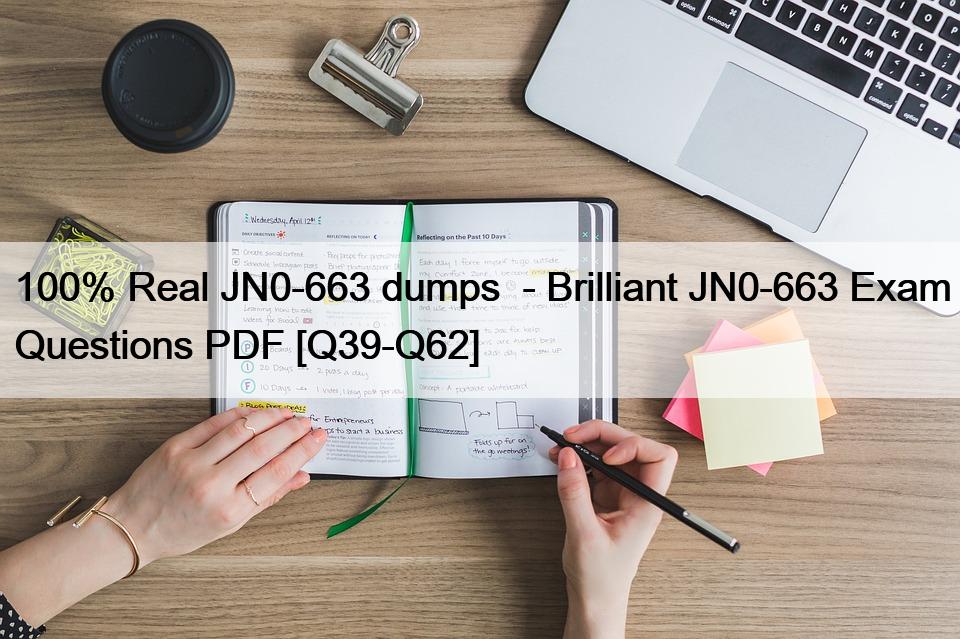100% Real JN0-663 dumps – Brilliant JN0-663 Exam Questions PDF [Q39-Q62]
100% Real JN0-663 dumps – Brilliant JN0-663 Exam Questions PDF
JN0-663 Exam PDF [2023] Tests Free Updated Today with Correct 96 Questions
Verified & Correct JN0-663 Practice Test Reliable Source Mar 15, 2023 Updated: https://www.premiumvcedump.com/Juniper/valid-JN0-663-premium-vce-exam-dumps.html
